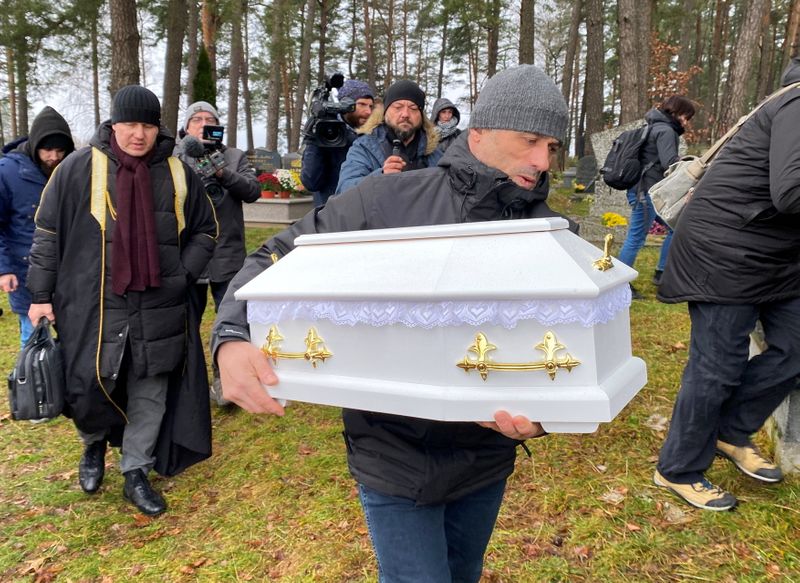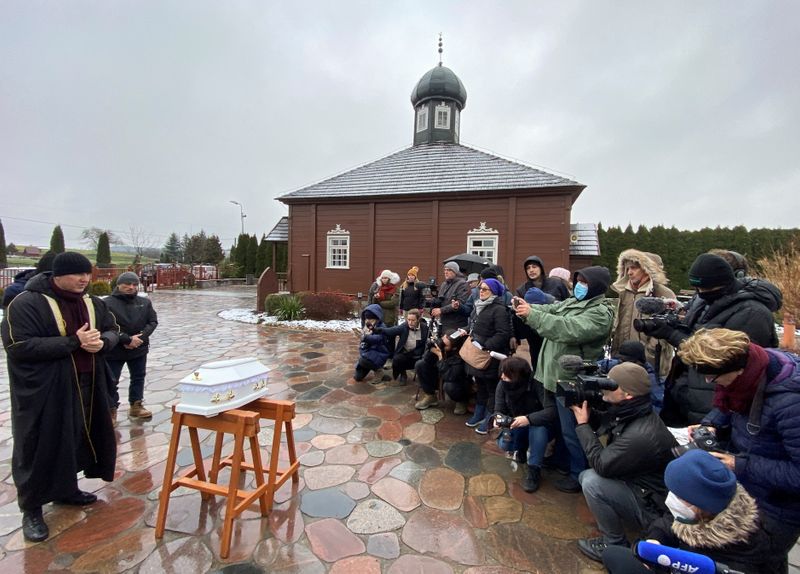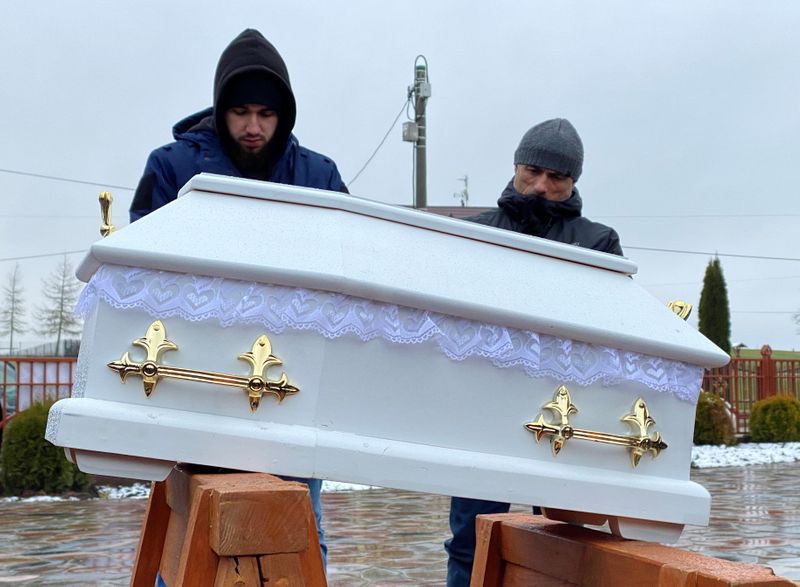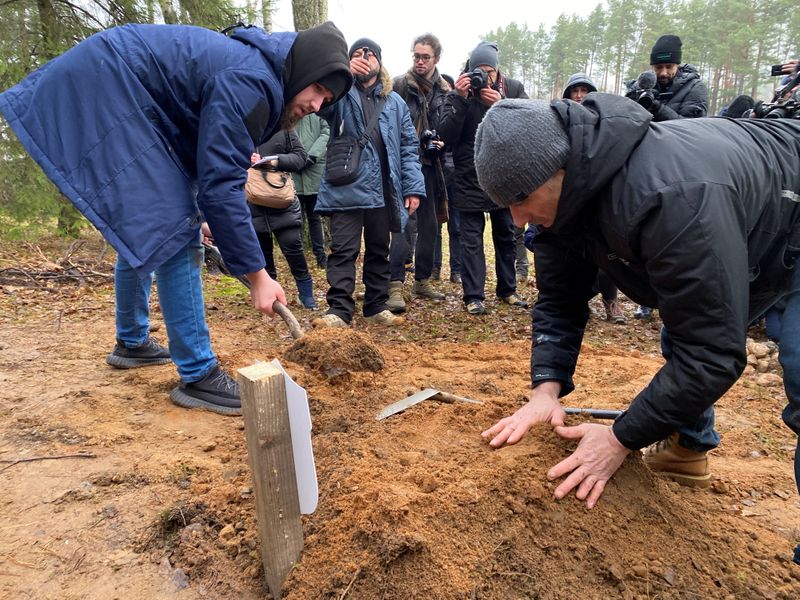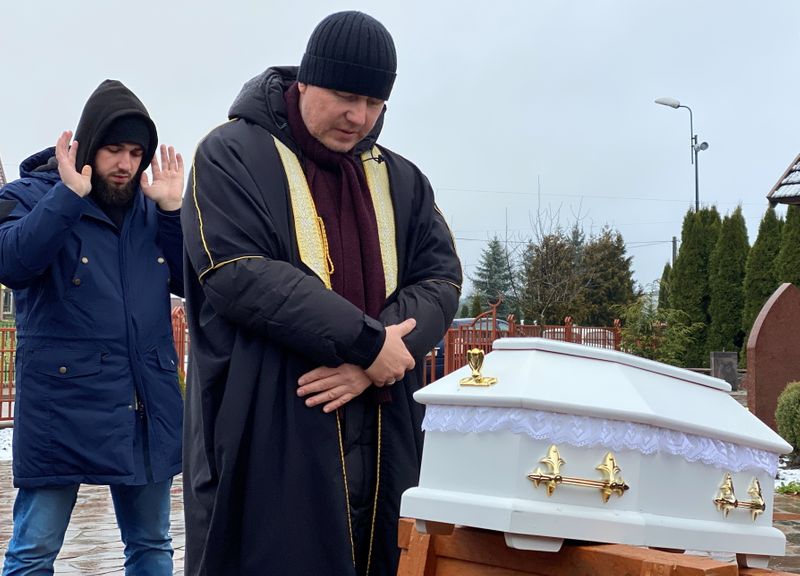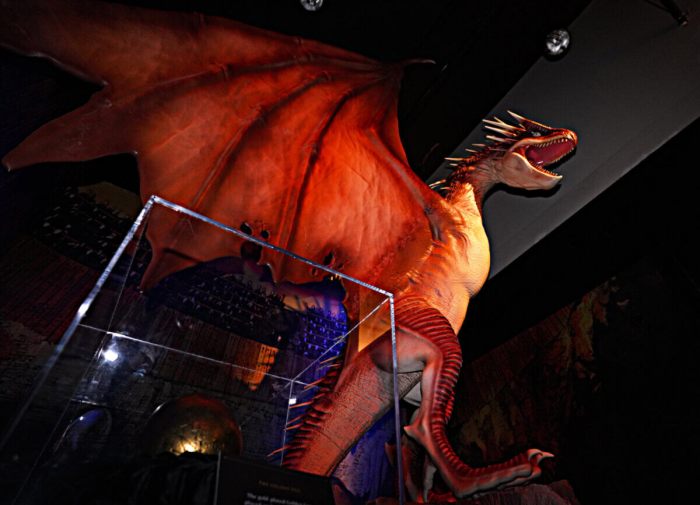BOHONIKI, Poland (Reuters) – In a tiny white coffin, the body of an unborn child that died in the womb of its mother as she tried to cross from Belarus into the European Union was buried in a Muslim cemetery in north-east Poland on Tuesday.
In Islam, unborn children are also given funeral rites. Halikari Dhaker’s mother miscarried him while she, her husband and their five children crossed the Belarusian-Polish border through dense forests and wetlands.
Hailing from Iraqi Kurdistan, Dhaker’s family were among thousands of migrants who travelled to Belarus in the hope of finding a better life in the EU.
The bloc says Minsk has engineered the migrant crisis on its eastern border to hit back against sanctions imposed by Brussels. Belarus has repeatedly denied this.
“The family of the dead child Halikari Dhaker are not here with us … As far as I know, the wife, the mother, is in a very serious medical state in a hospital,” said Aleksander Bazarewicz, Imam of the village of Bohoniki, home to a Tatar Muslim community.
As the first snow of winter lay on fields around the cemetery, the coffin was lowered into the ground by Bazarewicz and a Chechen Muslim man who took part in the funeral.
Humanitarian agencies say up to 13 migrants have died at the border, where many have suffered in a cold, damp forest with little food or water as a frigid winter sets in.
A small ethnic and religious minority in overwhelmingly Catholic modern Poland, the Tatars descend from warriors who were rewarded with land by Polish kings for protecting the country’s eastern border centuries ago.
The community has been delivering clothes and food to both migrants and Polish troops on the border.
(Reporting by Felix Hoske and Sergiy Karazy, writing by Alan Charlish and Felix Hoske; Editing by Mike Collett-White)

